Educational Outreach
Inspiring the next generation of aerospace engineers
Our Outreach Mission
Community engagement is a key part of our mission at the Aerospace Systems Lab. One of our most successful outreach initiatives has involved working with high school students to design, build, and fly lighter-than-air vehicles. These hands-on projects give students a chance to experience the excitement of aerospace engineering firsthand while learning about design, aerodynamics, and teamwork. By mentoring the next generation of engineers and scientists, we aim to inspire curiosity and show how accessible and rewarding STEM fields can be.
High School STEM Workshop
Engaging local students with hands-on aerospace engineering experiences
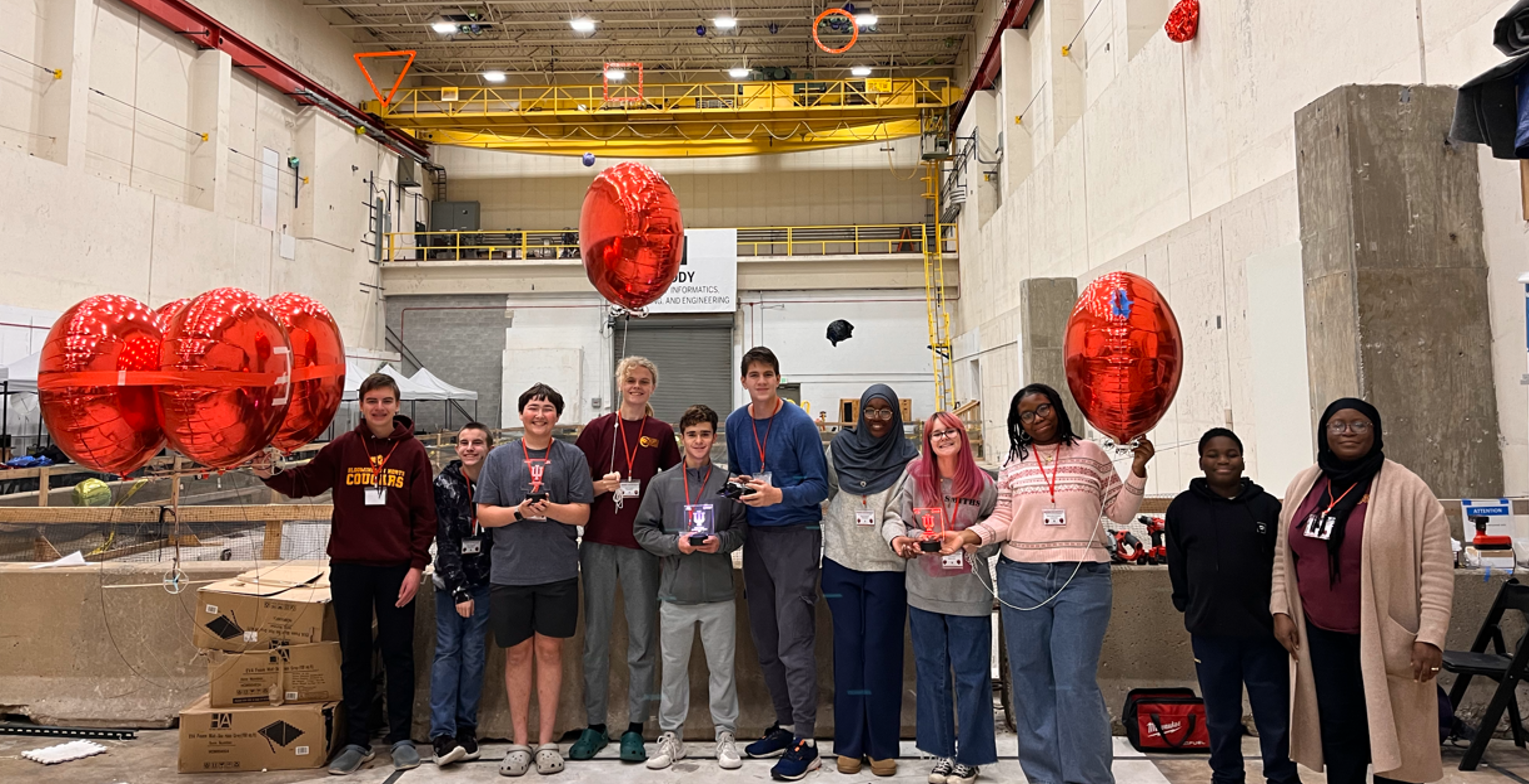
Workshop Activities
Students participate in guided sessions covering fundamental aerospace and autonomous vehicle concepts, from basic aerodynamics to autonomous vehicle design. The workshop includes both theoretical discussions and practical demonstrations, which also serves as a great introduction to the lighter-than-air drone competition "Defend the Republic" (DTR).
- Educational lecture on aerospace concepts
- Live demonstrations of autonomous vehicles
- Hands-on exploration of vehicle components
Workshop Highlights
Moments captured during our STEM workshop
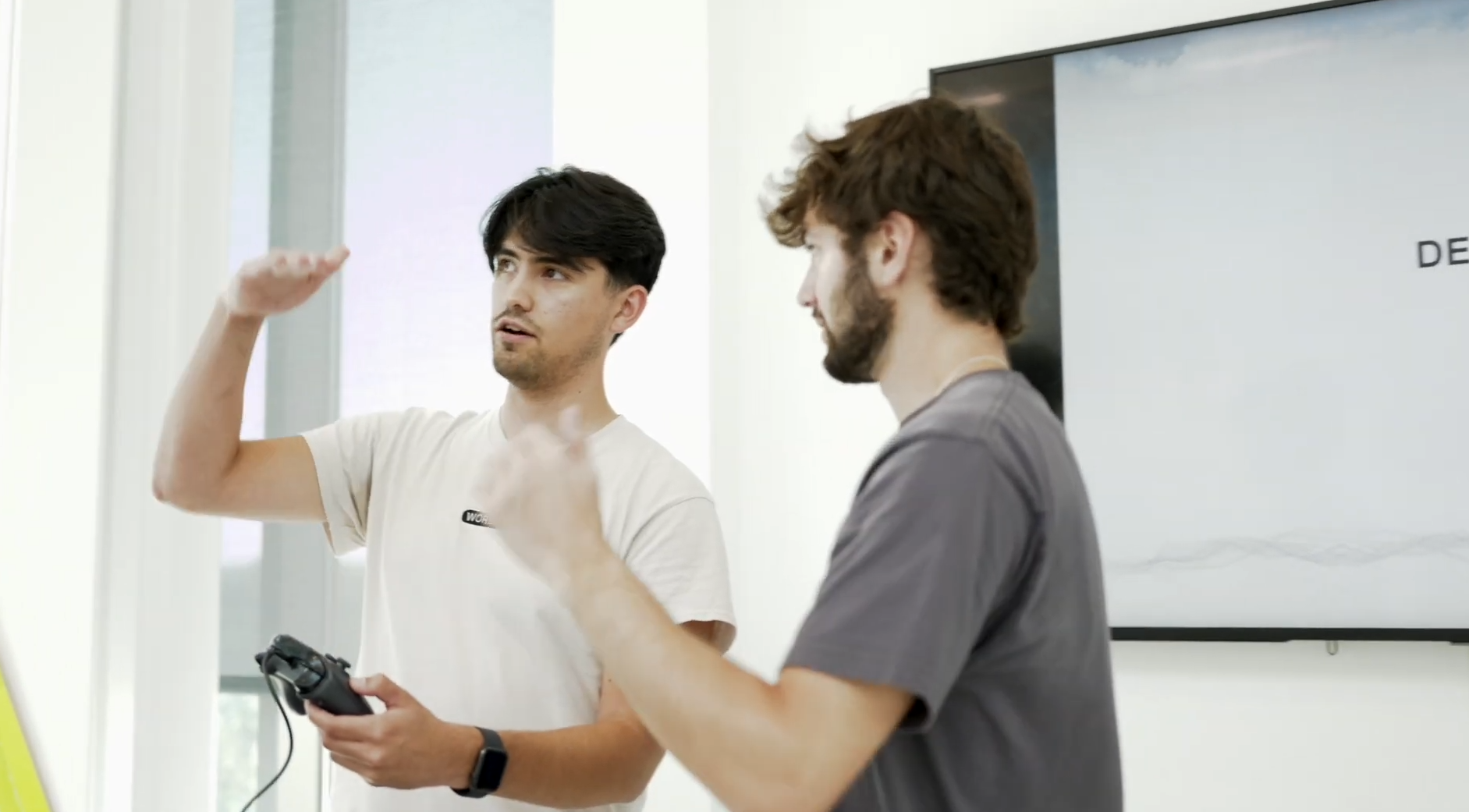
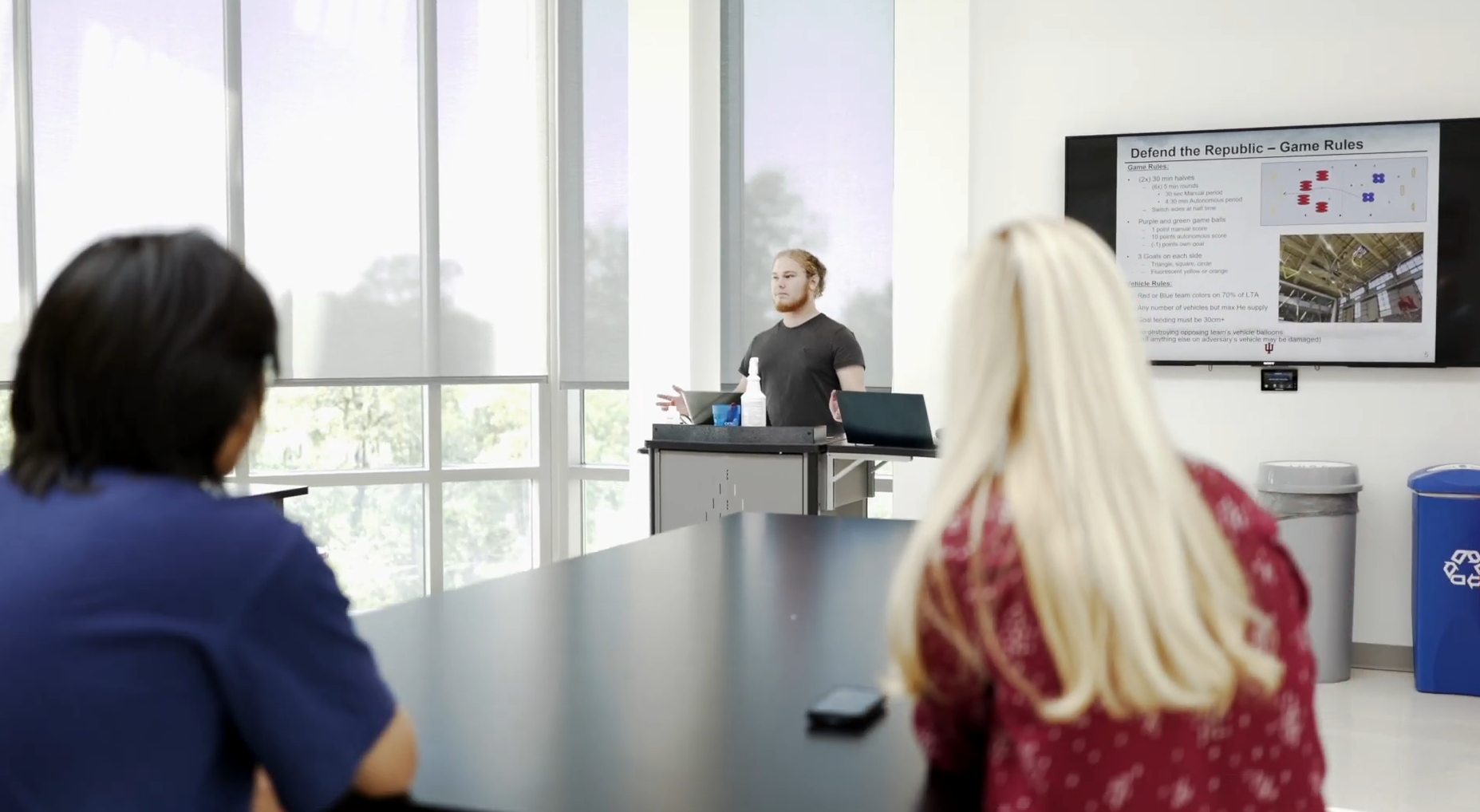
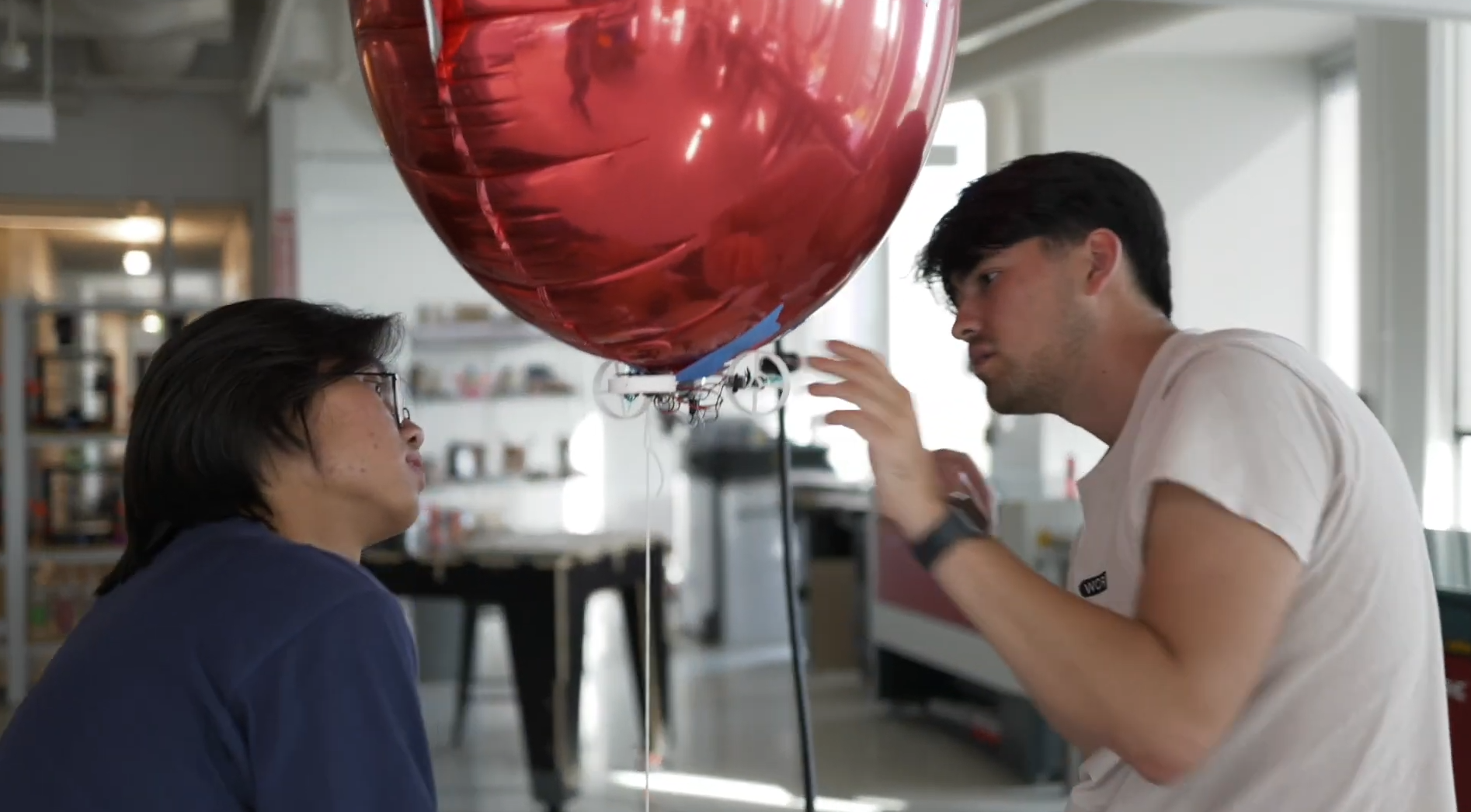
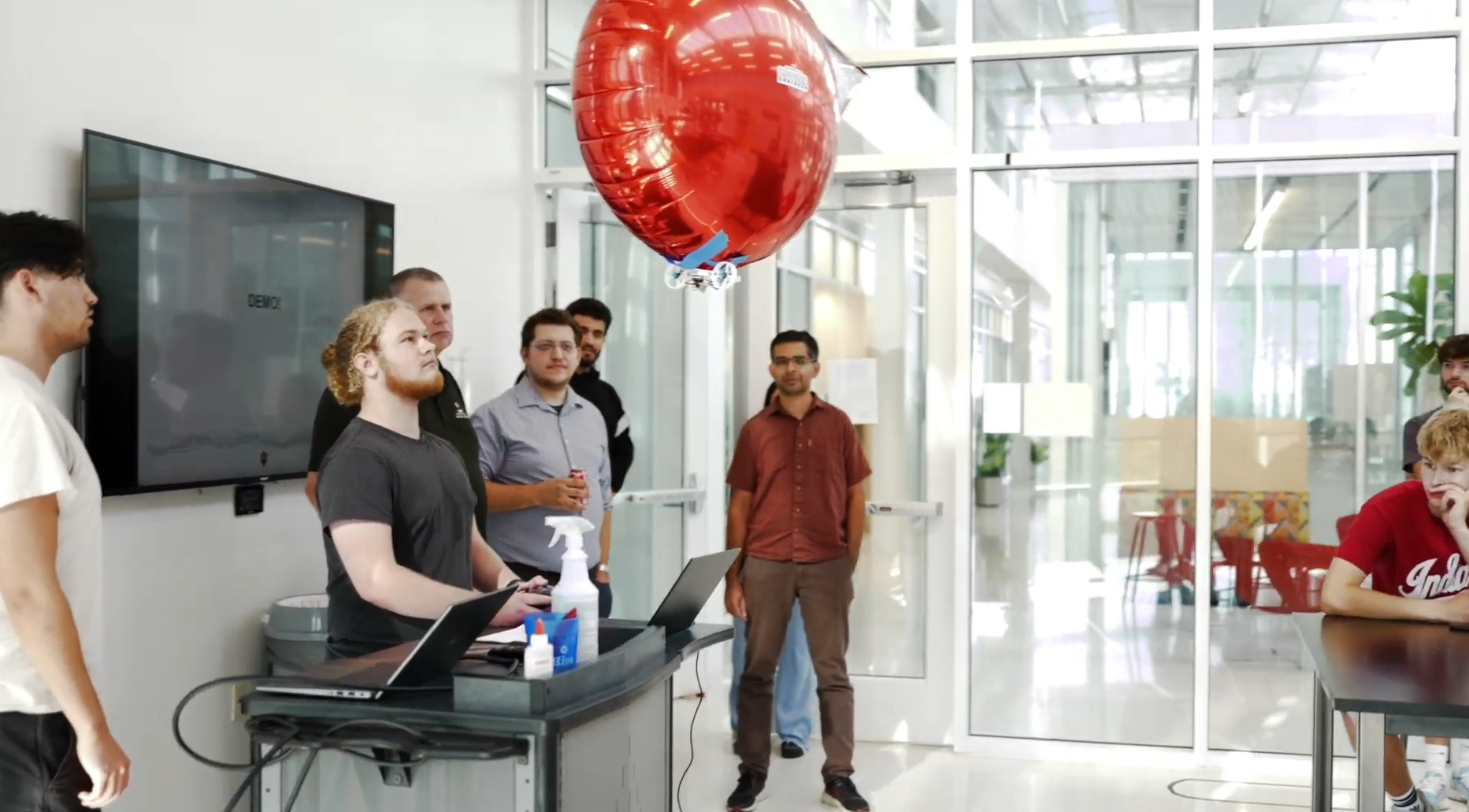
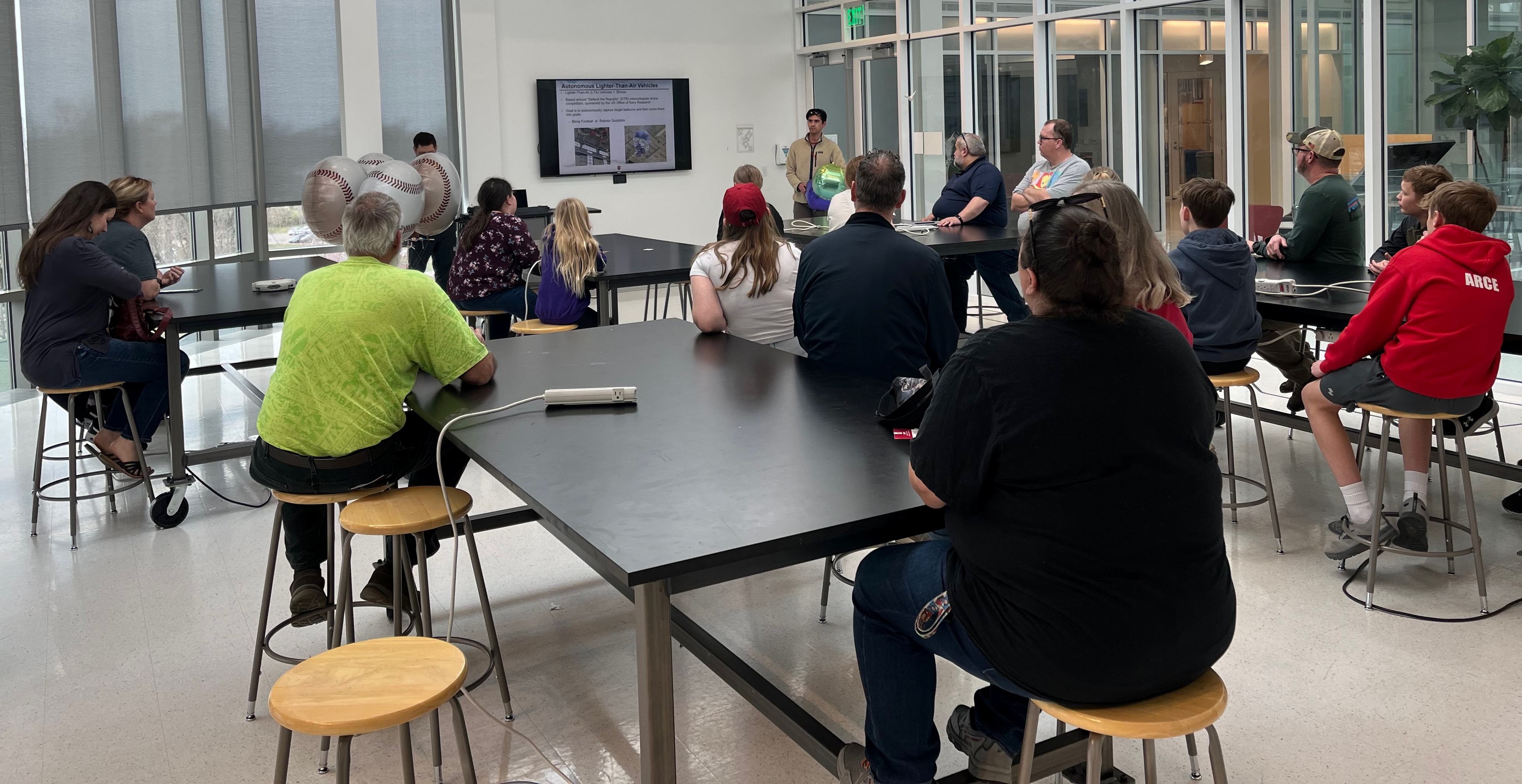
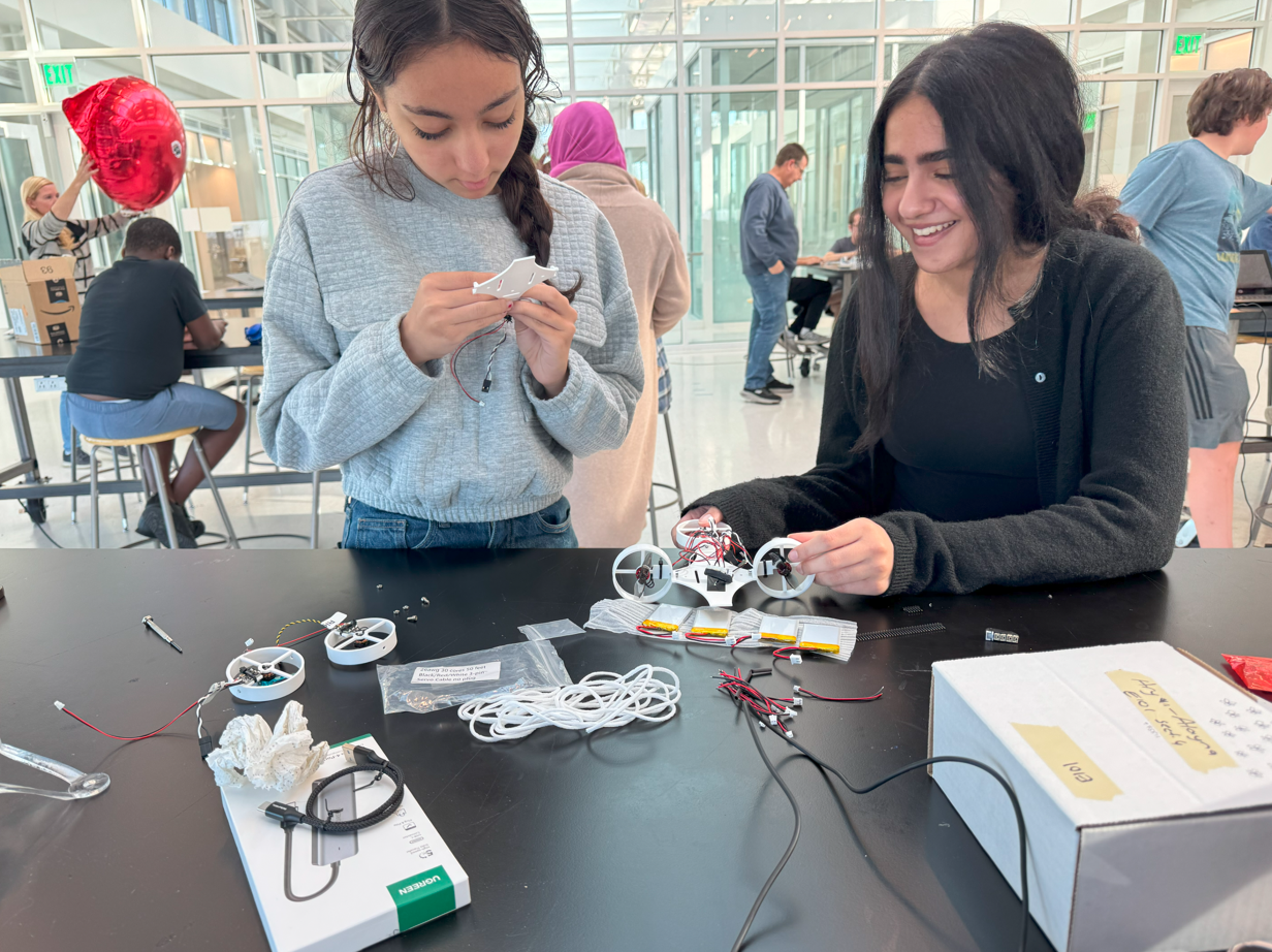
National Collegiate Aerial Robotics Competition
Advancing autonomous systems through competitive robotics and educational innovation
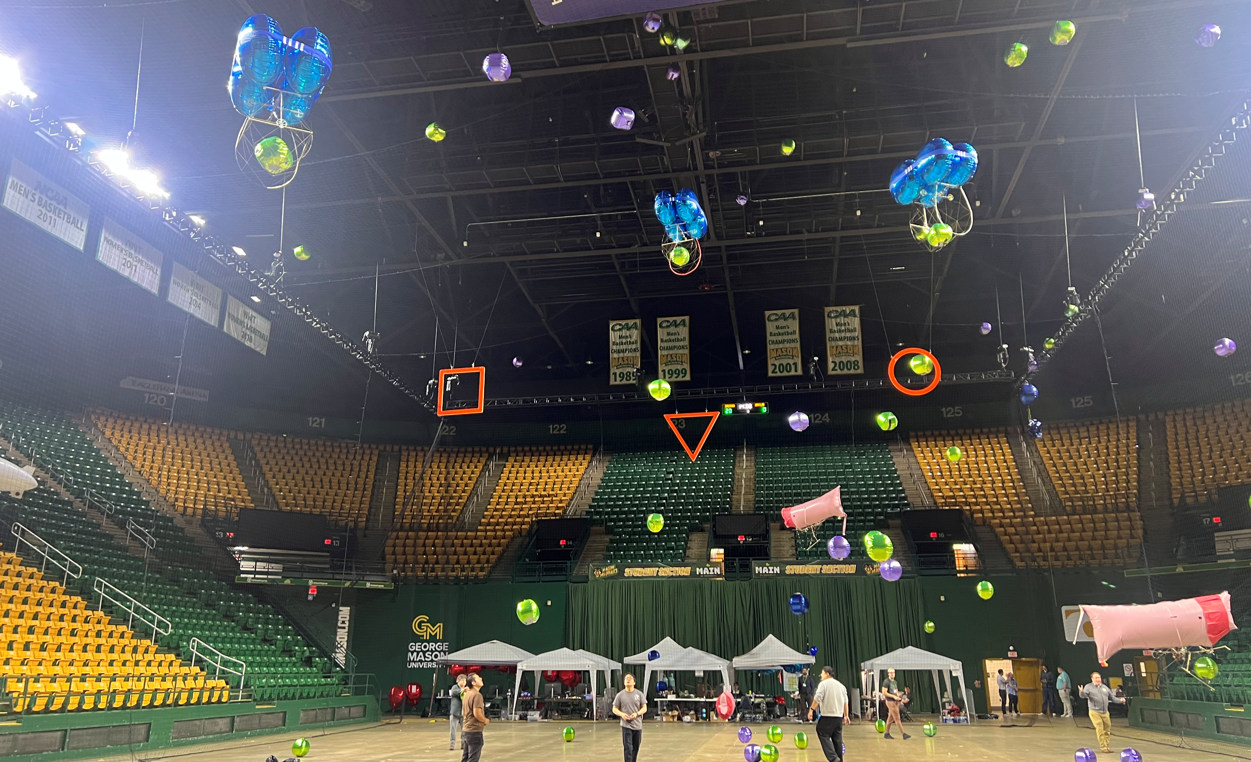
Defend the Republic Competition (DTR)
The Defend the Republic (DTR) competition challenges students to design and control autonomous lighter-than-air vehicles (blimps) in a unique "Robotic Quidditch" scenario. Teams must autonomously capture helium balloons and score them into opponent goals, operating in challenging environments with limited sensing, actuation, and computation capabilities.
The challenge of the game is designing, building and controlling autonomous swarms of LTA vehicles that can adapt quickly to shifting situations while staying aloft. This capability is valuable for diverse scenarios of naval interest, including disaster recovery, reconnaissance and surveillance, and delivering supplies and humanitarian aid.
Competition Scale & Demographics
Key statistics and participant breakdown
Competitors
From 9 engineering programs
Collegiate Teams
Representing 10 top universities
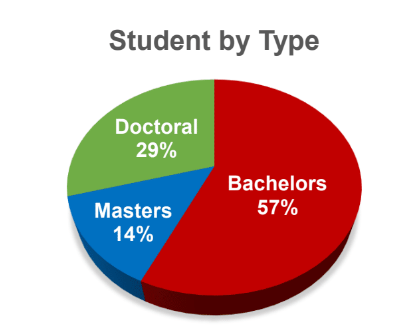
Student Demographics
Participating Universities
Coast-to-coast participation from prestigious engineering programs
Geographic Distribution
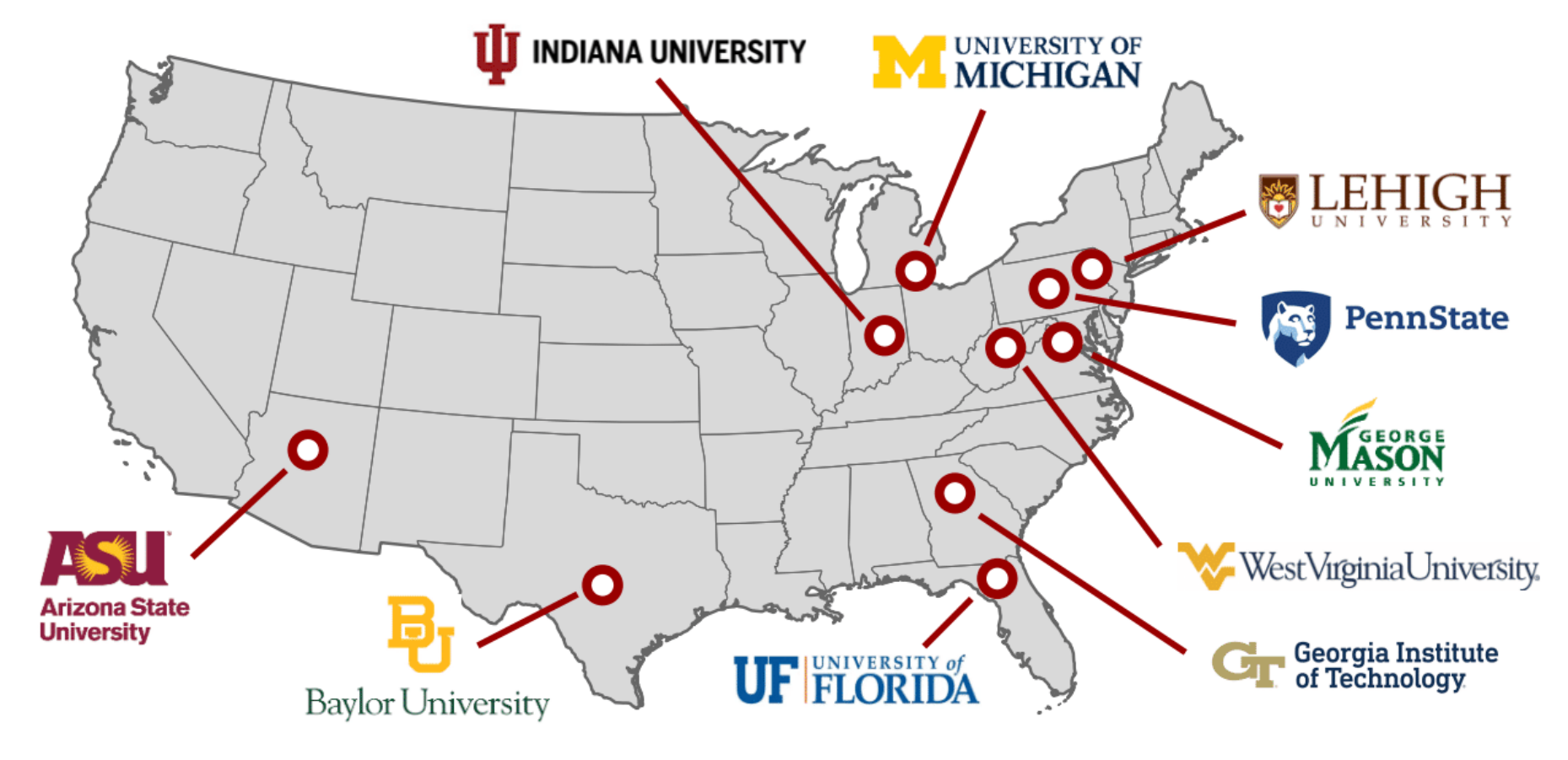
Universities spanning from the East Coast to the West Coast, representing diverse regions and engineering traditions.
Degree Programs Represented
Students represent diverse engineering disciplines across multiple institutions
- Aerospace Engineering
- Computer Science
- Computer Science & Engineering
- Electrical & Computer Engineering
- Intelligent Systems Engineering
- Manufacturing Systems
- Mechanical Engineering
- Robotics
